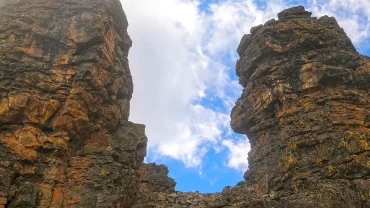Zanzibar is known as the “Spice Island,” a title that dates back centuries when it was a global hub for the spice trade. Today, visitors can experience this rich history firsthand through an immersive Zanzibar spice tour guide that takes them deep into the island’s lush plantations. From the intoxicating aroma of cloves to the delicate sweetness of vanilla, spice tours offer a journey through Zanzibar’s cultural and agricultural heritage. If you’re planning to explore the spice farms, here’s everything you need to know about what to expect, the unique spices grown here, and the cultural significance of Zanzibar’s spice industry.
1. What to Expect on a Zanzibar Spice Tour
Spice tours are one of the most popular cultural activities in Zanzibar, offering an opportunity to see, touch, and taste the very ingredients that have shaped the island’s history. Here’s what you can expect:
- A Guided Walk Through Spice Plantations: Expert local guides take you on a tour of working farms where spices are grown and harvested.
- Hands-On Experiences: Visitors get to crush, smell, and taste fresh spices straight from the source.
- Traditional Swahili Cooking Demonstrations: Some tours include live cooking demonstrations where you can see how spices are used in local cuisine.
- Shopping for Fresh Spices: Many spice farms offer packages of dried spices, teas, and essential oils to take home.
Most tours last about 2-3 hours, making them an excellent half-day excursion from Stone Town or nearby beach resorts.
2. Unique Spices Grown in Zanzibar
Zanzibar’s tropical climate makes it an ideal place for growing a variety of spices. Here are some of the most common ones you’ll find on a spice tour:
- Cloves: Zanzibar’s most famous spice, historically referred to as “gold” due to its high value in trade.
- Cinnamon: Known locally as “mdalasini,” this spice is used in both cooking and traditional medicine.
- Nutmeg & Mace: Nutmeg trees produce both nutmeg and mace, used for flavoring dishes and making herbal remedies.
- Vanilla: A highly sought-after spice that requires careful hand-pollination.
- Black Pepper: One of the world’s most traded spices, grown in vines that wrap around trees.
- Turmeric & Ginger: Essential ingredients in many Swahili dishes and natural medicine.
- Cardamom: Adds a fragrant, warm taste to both sweet and savory dishes.
- Cocoa & Coffee: Some plantations also grow cocoa and coffee, offering tastings as part of the tour.
3. The Cultural Significance of Zanzibar’s Spice Industry
Spices are more than just ingredients in Zanzibar—they are woven into the island’s history, economy, and daily life:
- Zanzibar’s Spice Trade Legacy: During the 19th century, Zanzibar was the world’s leading exporter of cloves, which played a key role in the economy.
- Traditional Herbal Medicine: Many of the spices grown here are used in Swahili medicine for treating ailments.
- Religious & Social Rituals: Cloves and other aromatic spices are commonly used in religious ceremonies, weddings, and celebrations.
- Spices in Swahili Cuisine: Zanzibar’s fusion of African, Arab, Indian, and European influences is reflected in dishes like pilau rice, spiced tea, and coconut curries.
4. Best Places to Experience a Spice Tour in Zanzibar
While there are many spice farms in Zanzibar, some offer a more authentic and engaging experience than others. Here are a few highly recommended places:
- Kizimbani Spice Farm: One of the oldest spice farms, located near Stone Town, with a well-organized tour experience.
- Kidichi Spice Plantation: Famous for its connection to the Omani sultanate, offering historical insights as well as spice demonstrations.
- Tangawizi Spice Farm: A family-run farm known for its interactive and educational spice tours.
- Mwani Zanzibar (Seaweed Center): While not a spice farm, this community project near Paje showcases another side of Zanzibar’s agriculture—seaweed farming.
5. When is the Best Time for a Spice Tour?
Zanzibar’s spice farms are open year-round, but the best time to visit depends on what you want to experience:
- June to October (Dry Season): Ideal for comfortable walking tours with less humidity.
- November to March (Wet Season): Lush greenery and peak harvesting season for some spices.
- Early mornings or late afternoons: Best for avoiding midday heat and enjoying a relaxed experience.
6. Tips for Enjoying Your Spice Tour
- Wear Comfortable Shoes: You’ll be walking through farms with uneven ground.
- Bring a Hat & Sunscreen: The tours take place outdoors, so sun protection is essential.
- Try Everything: Don’t hesitate to taste the fresh spices, fruits, and teas offered.
- Support Local Farmers: Purchasing fresh spices or handmade products helps sustain local communities.
- Ask Questions: The guides are knowledgeable and love sharing stories about their culture and traditions.
Conclusion
A Zanzibar spice tour guide offers more than just a walk through fragrant plantations—it’s an immersive journey into the heart of Zanzibar’s culture and history. Whether you’re a food lover, history buff, or simply looking for a unique experience beyond the beaches, a spice tour is a must-do activity. With fresh aromas filling the air and warm Swahili hospitality welcoming you at every step, this tour will leave you with a deeper appreciation for Zanzibar’s Spice Island heritage.
Ready to explore the island’s flavorful secrets? Book your Zanzibar spice tour and awaken your senses!





Comment (0)